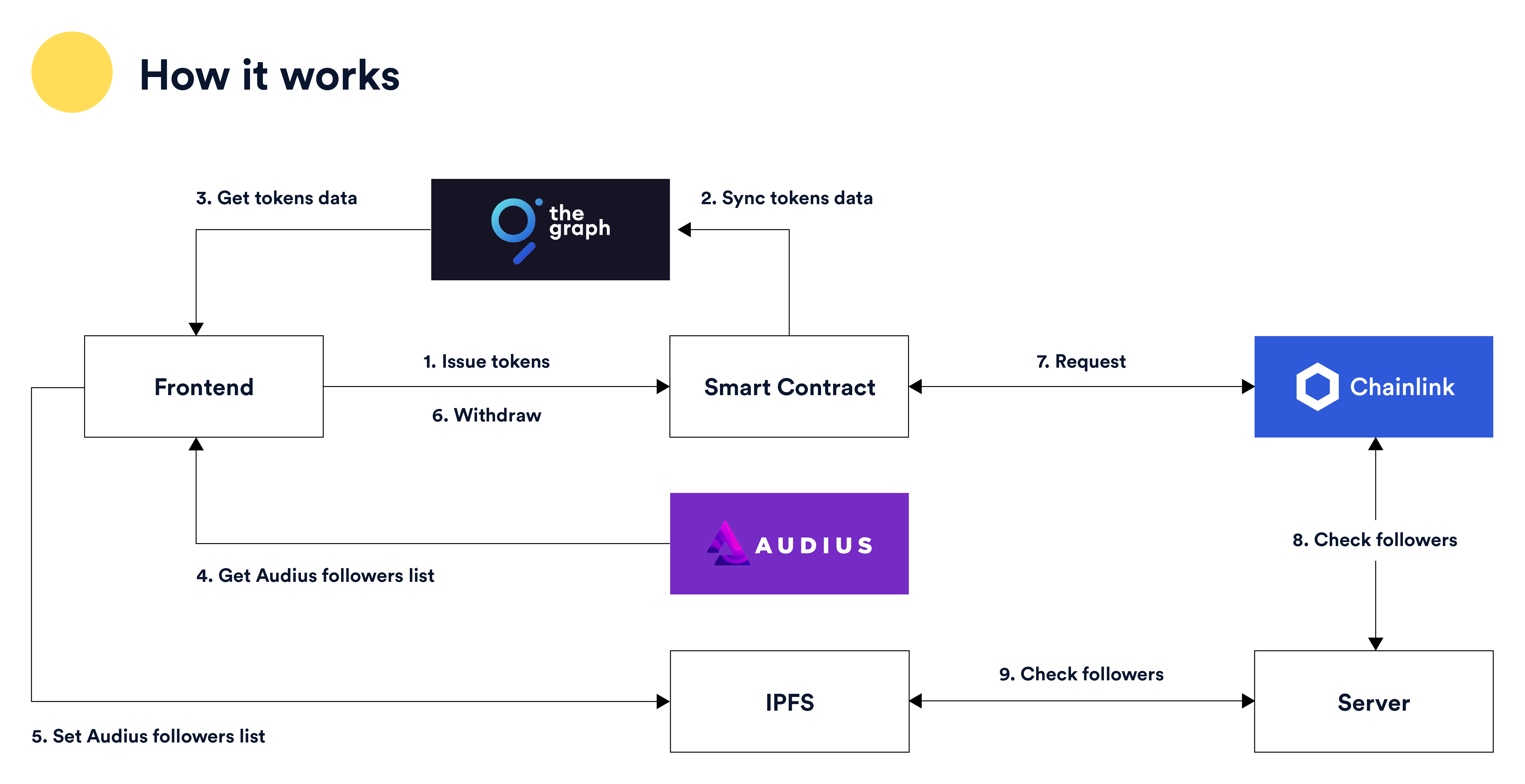What We Accomplished Using Chainlink and IPFS
We have achieved the above flow for distributing creator tokens, as well as the following:
Dramatic reduction in gas costs and more efficient transactions
Where a large amount of data would have required a large amount of gas, we were able to drastically reduce the cost of gas by using IPFS to store the data off-chain and retrieve it via Chainlink.
This directly leads to lower gas prices for users in Iroiro and contributes to lowering the barrier to entry for users.
Connecting to off-chain data
It was not possible for the blockchain to get the file contents on IPFS and execute the required logic, but we were able to do this using Chainlink.
This makes it possible to develop highly scalable smart contracts that use off-chain data.
Realization of a flexible token distribution method
Iroiro only used Audius during the hackathon, but it is possible to work with various platforms as long as the data to be distributed on other platforms can be obtained via an API.
Using Chainlink means that flexible distribution is now possible, not just limited to the on-chain distribution method.
Current Iroiro Development Status
Since winning the ETHOnline hackathon prize, Iroiro has launched on Ethereum mainnet, and has support to distribute tokens on xDai and Polygon.
The platform developed in the hackathon has been enhanced to allow for more flexible distribution methods, and more will be added as needed.
IPFS External Adapter
We are also working on expanding the IPFS External Adapter in parallel with Iroiro.
In the hackathon, we developed the External Adapter specifically for Iroiro, but in the future, we will develop a generalized IPFS External Adapter that can be used by various contracts without limitations.
If you need a Chainlink External Adapter for a function you want to achieve, please contact us.
- The Top Ways for Smart Contract Developers to Use Chainlink
- Testing Chainlink Smart Contracts
- Random Number Generation in Solidity
If you’re a developer interested in using Chainlink to connect smart contracts to data from a new blockchain or any other data source, reach out here or visit the developer documentation. You can also subscribe to the Chainlink Newsletter to stay up to date with everything in the Chainlink stack.
The Chainlink Fall 2021 Hackathon kicks off October 22, 2021. Whether you’re a developer, creator, artist, blockchain expert, or completely new to the space, this hackathon is the perfect place to kickstart your smart contract development journey and learn from industry-leading mentors. Secure your spot today to compete for over $300k in prizes.

